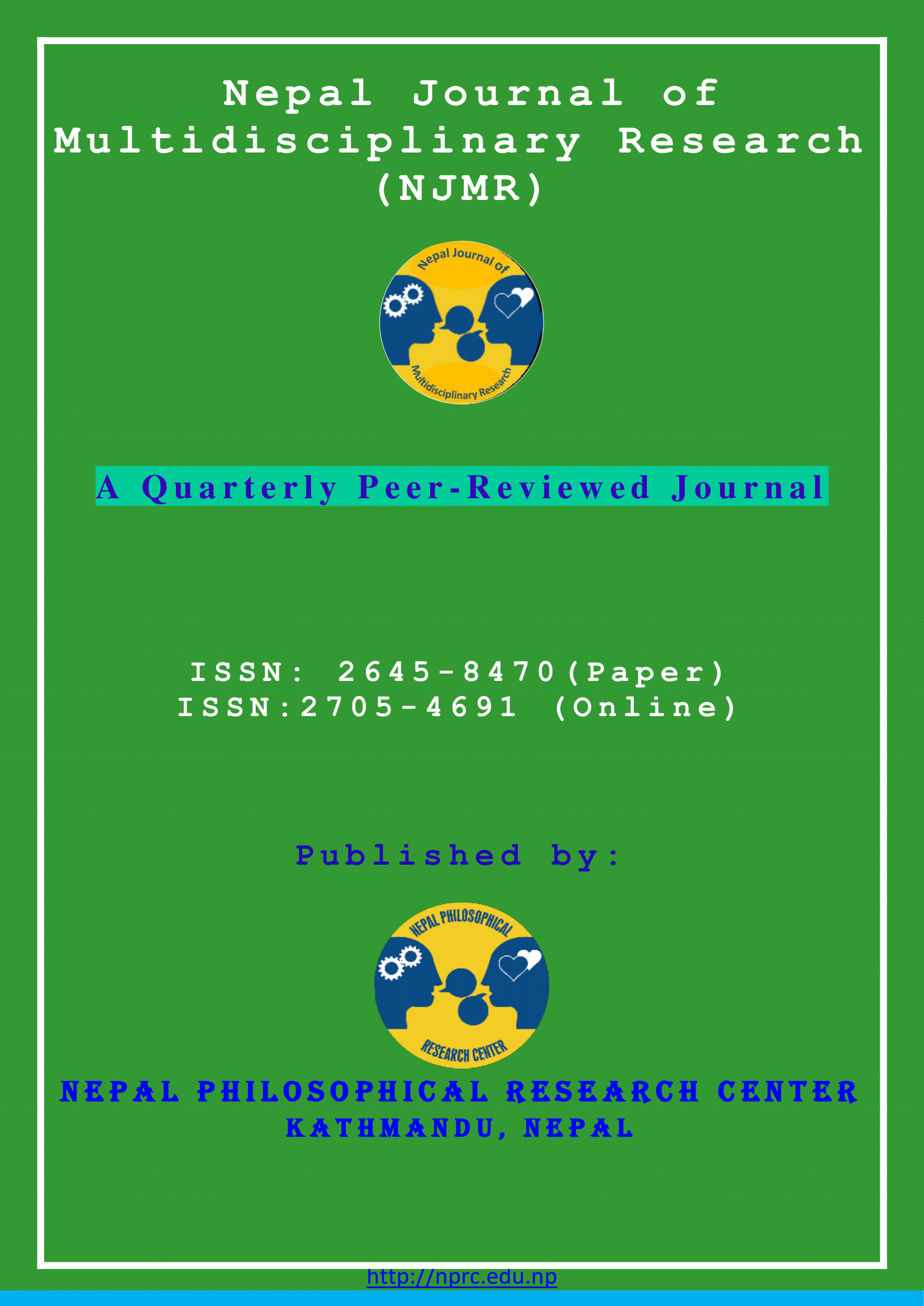Folktales: A Moral Message from the Past to the Future Generation
DOI:
https://doi.org/10.3126/njmr.v4i1.36618Keywords:
folktales, character, implication, moral, holistic, generationAbstract
Folktales are being told and heard from one generation to another generation more verbally than in written form. They are usually are short, imaginative narratives that usually use animal characters to convey folk wisdom and to help the reader interpret human nature and debate proper human behavior. The aims of this study were to analyze philosophical, sociological, cultural and educational perspectives of folktales in the context of Nepali community and to explore possible ways of incorporating folktales with classroom teaching for holistic well being of students. The study adopts a qualitative approach, telephone interviews where 6 distinguished personalities of the related field were interviewed. The data were analysed via thematic analysis and organized into four main themes: (a) 'They don't say but you understand' (b) 'Folktale is a mirror of society' (c) 'People make culture; culture make people', and (d) 'Going together, growing together'. The findings demonstrate that folktales carry untold messages that are implied in philosophical, cultural, sociological and pedagogical aspects, tell us about our history and anthropology and motivate us morally towards a prosperous future. Teachers' involvement is described as crucial especially in understanding and interpretation of folktales in classroom. The study calls for awareness of how folktales can be transformed into classroom teaching, how proper and motivating morale can be drawn and how folktales can be interpreted for holostic allround development of an individual especially younger generation.
Downloads
Downloads
Published
How to Cite
Issue
Section
License
This license enables reusers to distribute, remix, adapt, and build upon the material in any medium or format for noncommercial purposes only, and only so long as attribution is given to the creator.




